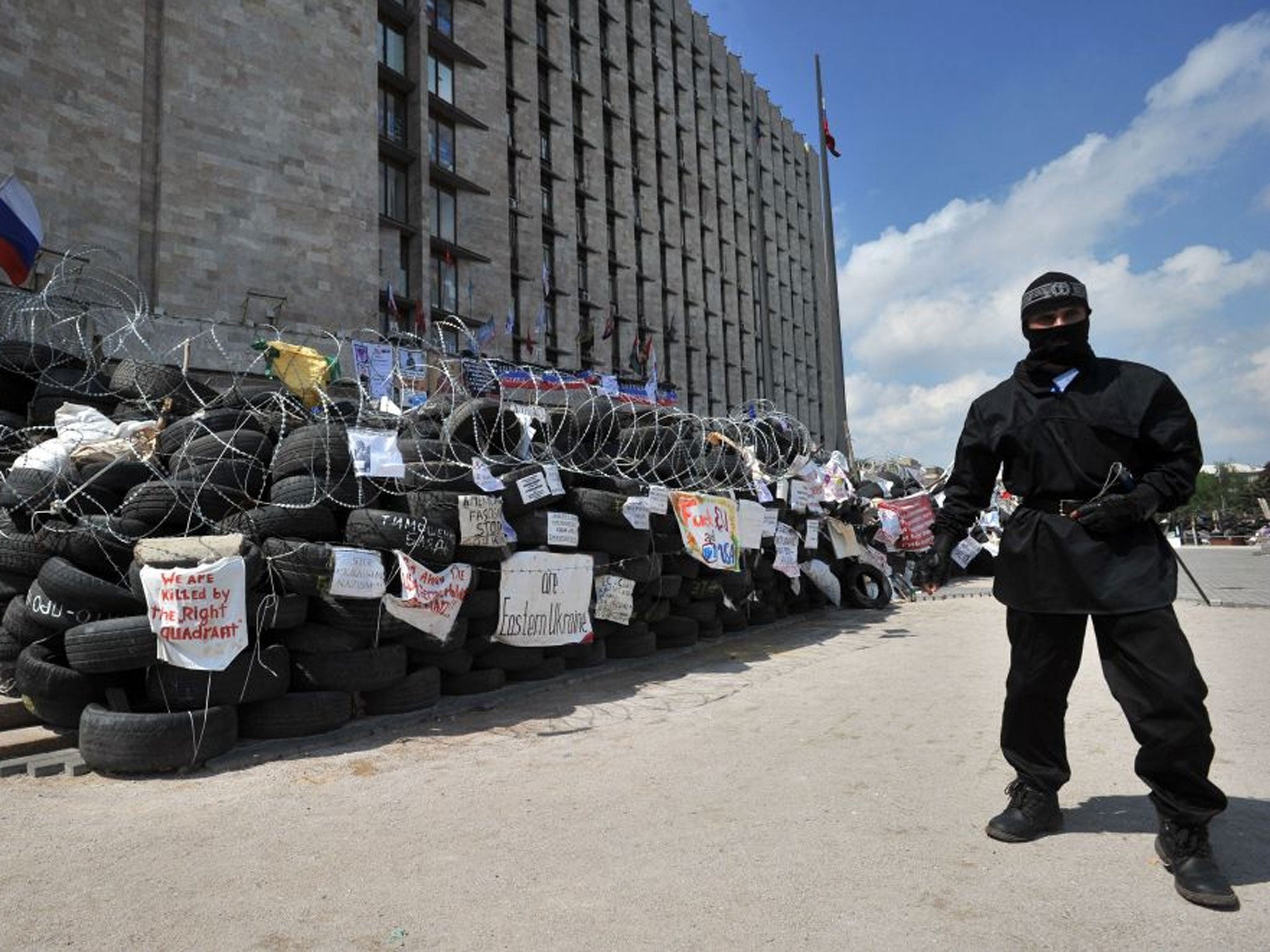Ukraine crisis: Moscow accuses Kiev of 'racism and glorifying Nazis'
Russia's statement comes as fighting continues in the east of Ukraine

Your support helps us to tell the story
From reproductive rights to climate change to Big Tech, The Independent is on the ground when the story is developing. Whether it's investigating the financials of Elon Musk's pro-Trump PAC or producing our latest documentary, 'The A Word', which shines a light on the American women fighting for reproductive rights, we know how important it is to parse out the facts from the messaging.
At such a critical moment in US history, we need reporters on the ground. Your donation allows us to keep sending journalists to speak to both sides of the story.
The Independent is trusted by Americans across the entire political spectrum. And unlike many other quality news outlets, we choose not to lock Americans out of our reporting and analysis with paywalls. We believe quality journalism should be available to everyone, paid for by those who can afford it.
Your support makes all the difference.Moscow accused Kiev of threatening peace in the region on Monday, and called on the international community to intensify efforts to end what it believes is an extremist show of “racism, xenophobia, ethnic intolerance, [and] the glorification of the Nazis" in the east of Ukraine.
As the death toll caused by fighting in eastern cities continued to rise, the Ukrainian Foreign Ministry said in a statement, according to BBC News: “The alternative [to stepping up efforts] is fraught with such destructive consequences for Europe's peace, stability and democratic development that it is absolutely necessary to prevent it.”
Moscow’s call came as Ukrainian military pilots survived their plane being shot down near the pro-Russian town of Slovyansk, according to the Ukrainian Defence Ministry.
The Mi-24 aircraft came under heavy machine gun fire and subsequently crashed into a river, the Ministry said in a statement.
The crew of the aircraft were evacuated to a nearby camp, but the ministry did not give any detail of their condition, other than that they were alive.
The crash is thought to be the latest in a string of incidents involving helicopters reportedly being shot down by pro-Russian rebels, since uprisings began in eastern parts of the country early this year.
Earlier in the day, four Ukrainian soldiers were killed and 30 injured in a gun battle against pro-Russian militants in the eastern city, Ukraine’s Interior Ministry reported.
While the statement issued on the Ministry’s website did not disclose any further details about how the officers died, a separate statement said the troops had started an “anti-terrorist operation” against around 800 the pro-Russia militants.
A pro-Russia militia spokesman in Slovyansk said an unspecified number of people had been killed and wounded in the clashes, including a 20-year-old woman killed by a stray bullet.
Both sides indicated fighting was taking place at several sites around the city.
Slovyansk has become the centre of pro-Russian protests in the east against the interim government in Kiev, following the ousting of former Moscow-allied President Yanukovych in February of this year.
Meanwhile, in the southern port city of Odessa, the government has deployed an elite national guard unit to re-establish control.
The twin moves reflected an apparent escalation of efforts to bring both regions back under Kiev's control.
It is likely the government is attempting to prevent a situation in which it loses Odessa and eastern parts of the country – which would see it landlocked and cut off entirely from the strategic Black Sea.
Moscow has already annexed a significant part of Ukraine's Black Sea coast in grabbing back the peninsula of Crimea.
On 11 May separatists in the turbulent eastern city of Donetsk are planning to mirror the internationally disputed March referendum held in Crimea, according to a spokesman from the German government.
Germany believes that the referendum planned would violate the constitution of the country and make the situation there even worse, Chancellor Angela Merkel's spokesman said on Monday.
It is feared that if the activists who have occupied regional offices in Donetsk hold a poll on secession, it could complicate the Ukrainian presidential election scheduled for 25 May.
“Such a referendum, against the Ukrainian constitution, does not calm things down but escalates them,” Merkel's spokesman Steffen Seibert told a news conference, adding that the people who had called the vote had no democratic legitimacy.
Additional reporting by agencies
Join our commenting forum
Join thought-provoking conversations, follow other Independent readers and see their replies
Comments